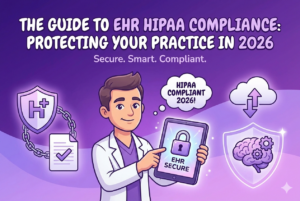Secure Email HIPAA Compliant: 6 Best Tips for Safe Messaging
24 Jun 2025 By: Vlade Legaspi
Updated
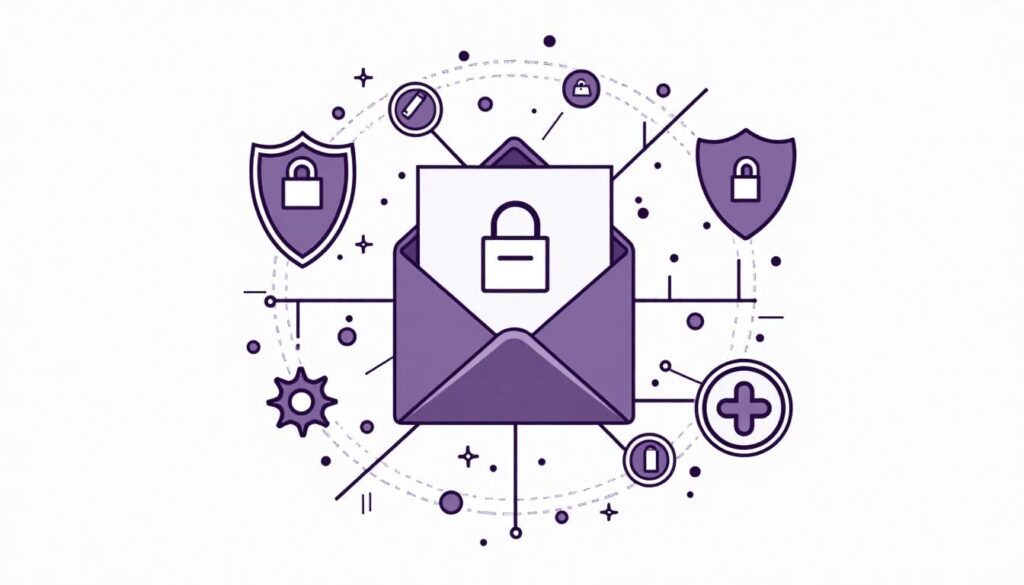
Secure email HIPAA compliant tools are vital for safe healthcare communication. HIPAA sets strict rules to protect patient data in today’s digital world. Healthcare teams must choose email services that meet these rules, such as EmailLabs (e-mail delivery service provider). To do this well, they need to know key points and steps in the selection process.
Understanding the Rules
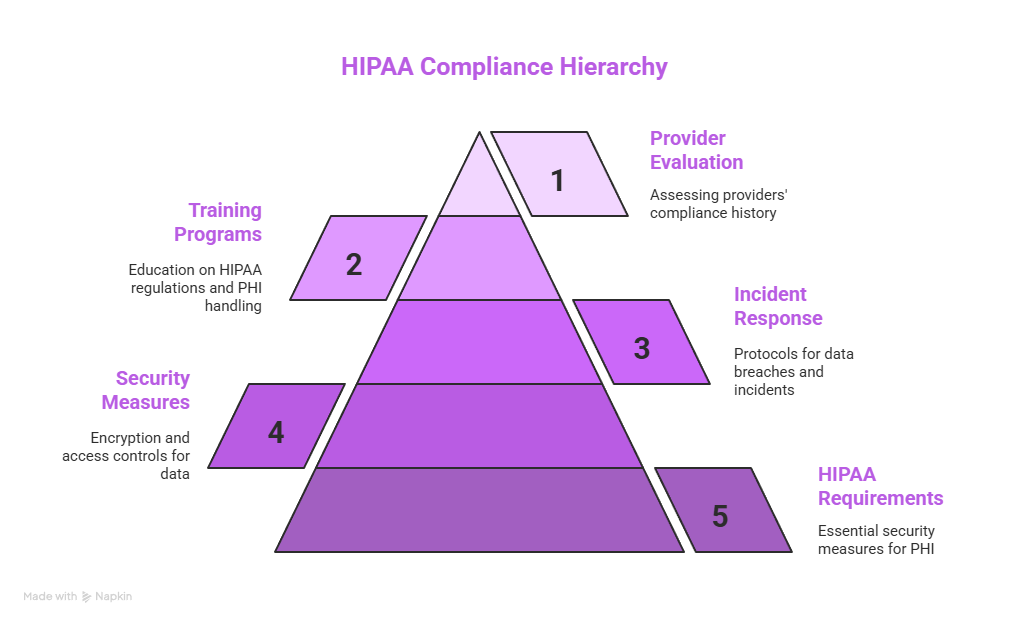
The selection process for email providers should start with an understanding of HIPAA compliance requirements. HIPAA protects patient information while establishing secure methods for handling health records across different platforms. The law protects individual privacy rights while defining procedures to handle sensitive health data throughout different operational systems.
To transmit protected health information (PHI) through email providers must implement particular security measures which are required by HIPAA. Any email provider that wants to be HIPAA-compliant must implement data encryption alongside secure access controls and audit capabilities and other security measures. Evaluation of potential email providers requires understanding the specified requirements of HIPAA compliance. Ongoing security protocol updates along with threat assessments represent the ongoing requirements for maintaining compliance since protection against new threats and technological advancements demands continuous security updates.
Key Requirements for Providers
- The evaluation process for email providers demands verification of these essential HIPAA requirements.
- The encryption of PHI through emails requires protection during both transmission and storage to stop unauthorized access.
- The system needs to implement secure authentication protocols which control who can access confidential data.
Log tracking functionality enables organizations to monitor email access activities for both compliance purposes and accountability needs.
In addition to the fundamental requirements a provider should have an established incident response plan. Organizations that have a clear protocol to handle data breaches or security incidents will reduce their risks and improve their overall security position. Training programs together with educational sessions about HIPAA regulations and proper PHI handling practices should remain essential for all staff members. Repeated training initiatives help employees understand compliance value and fulfill their duties for protecting medical records.
The evaluation process should consider the provider’s background together with their standing in the industry. Organizations can gain important information by studying their compliance maintenance history and their security incident response abilities. Healthcare organizations should share their experiences with particular email providers to assist other healthcare organizations in their selection process. Organizations will improve their ability to choose appropriate email providers through additional analysis that links HIPAA compliance to their operational requirements and security needs.
Key Security Features to Check
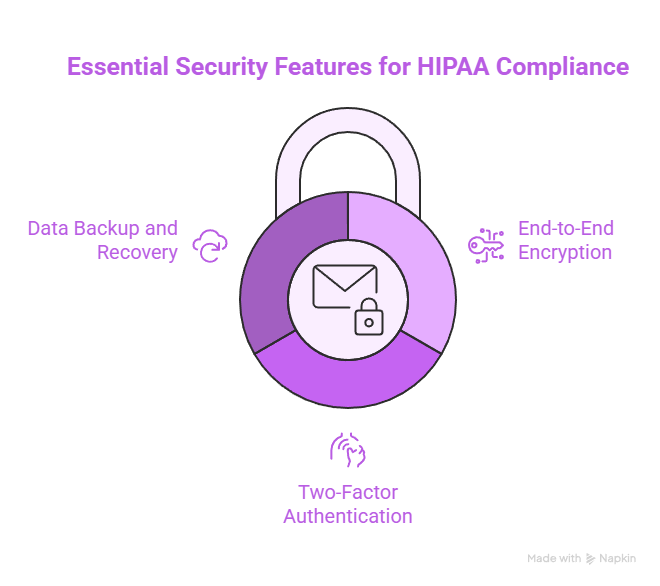
End-to-End Encryption
A provider must have strong security features when selecting an email service. The level of security provided by an email provider determines the degree of protection for sensitive data. The following features should be assessed:
End-to-end encryption protects email contents so that only the sender and the intended recipient can access the message. The protection of PHI through transmission depends heavily on this encryption feature. All email providers must have end-to-end encryption as their standard encryption method. A clear understanding of encryption protocols such as PGP (Pretty Good Privacy) or S/MIME (Secure/Multipurpose Internet Mail Extensions) is required because their implementations and effectiveness can differ. The strength of encryption determines the level of protection your communications will receive against potential threats.
Two-Factor Authentication (2FA)
Two-factor authentication provides additional security by requiring two verification steps before users can access their accounts. Any email provider seeking HIPAA compliance needs this feature as it helps decrease unauthorized access risks. Users should examine the different types of 2FA methods which include SMS codes and authenticator apps and biometric verification. Choosing an email provider with multiple 2FA options strengthens your security posture because each authentication method provides unique advantages and limitations.
Data Backup and Recovery
Your data backup system must be designed for quick data recovery following system breakdowns and data breaches. The email provider must have a dependable data restoration system to provide efficient data recovery. The system should have automatic backup functions as well as a version history and recovery process that lets users get their lost or damaged data back without extended system interruptions. To protect data from natural disasters or technical failures the backup procedure should run with scheduled intervals and store copies across multiple storage locations. Business operations can continue without disruption when you have complete backup measures to safeguard essential information.Secure Email HIPAA Compliant: Checking Provider’s History and Expertise
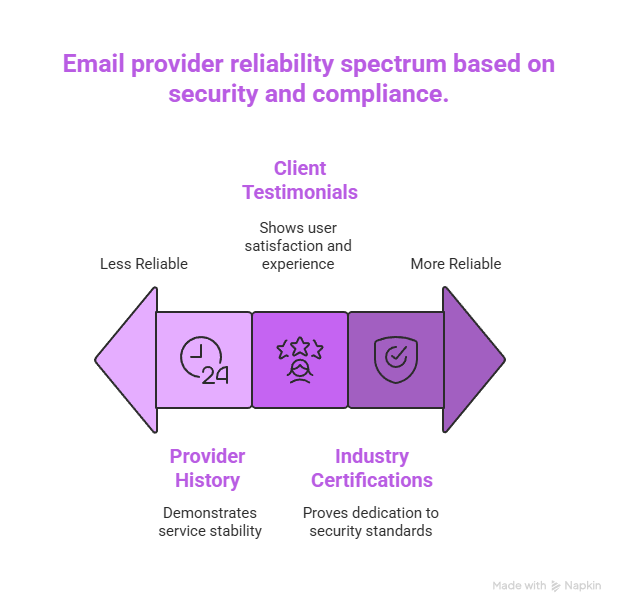
Email providers differ in their functionality from each other. Healthcare sector organizations should carefully assess the reputation and professional background of their potential email service providers. Organizations in the healthcare sector should select email providers which demonstrate their capability to understand their industry-specific needs. A provider who has significant experience in healthcare understands how to manage HIPAA regulations while maintaining complete data protection and confidentiality. The reliability of an email provider often increases with its duration of operation in business since this demonstrates service stability and reliability.
Client Testimonials and Reviews
Customer testimonials and reviews offer important information about the dependability along with performance quality of an email provider. Healthcare professionals who use the service should be evaluated to understand their satisfaction and their overall experience with the system. Reviewers should pay attention to the comments regarding customer support and system integration and notable features that users valued. The evaluation of a provider’s reputation can also be supported through informal feedback from online forums and professional networks which present unfiltered user experiences.
Industry Certifications
The email provider needs to show relevant industry certifications which prove their dedication to security and compliance standards. The email provider demonstrates strong security and privacy standards through certifications such as ISO 27001 and SOC 2 Type II. The provider must participate in ongoing assessment procedures to maintain their security certifications because their commitment to compliance demonstrates their dedication to protecting sensitive information. The provider should describe their data handling methods by explaining encryption techniques and storage solutions which follow the most secure healthcare industry standards.
Understanding Business Associate Agreements (BAAs)
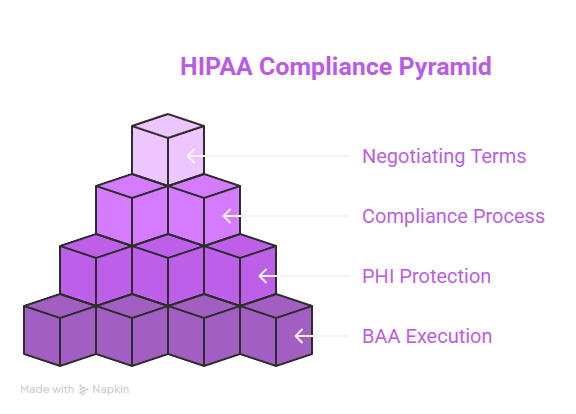
The Business Associate Agreement (BAA) serves as an essential requirement for HIPAA compliance operations. The legal document shows email providers their duties for handling Protected Health Information (PHI). Before selecting a provider you need to confirm their willingness to execute a BAA.
Importance of a BAA in Securing Email HIPAA Complian
A BAA proves that the provider maintains PHI protection standards through penalty regulations for privacy breaches. The HIPAA compliance process requires this essential step to help both parties understand their obligations.
Negotiating Terms
The BAA process requires thorough examination of terms and businesses should negotiate any clauses which differ from organizational requirements. Both parties need clear definitions about their duties regarding patient information protection in the agreement.
Cost Considerations
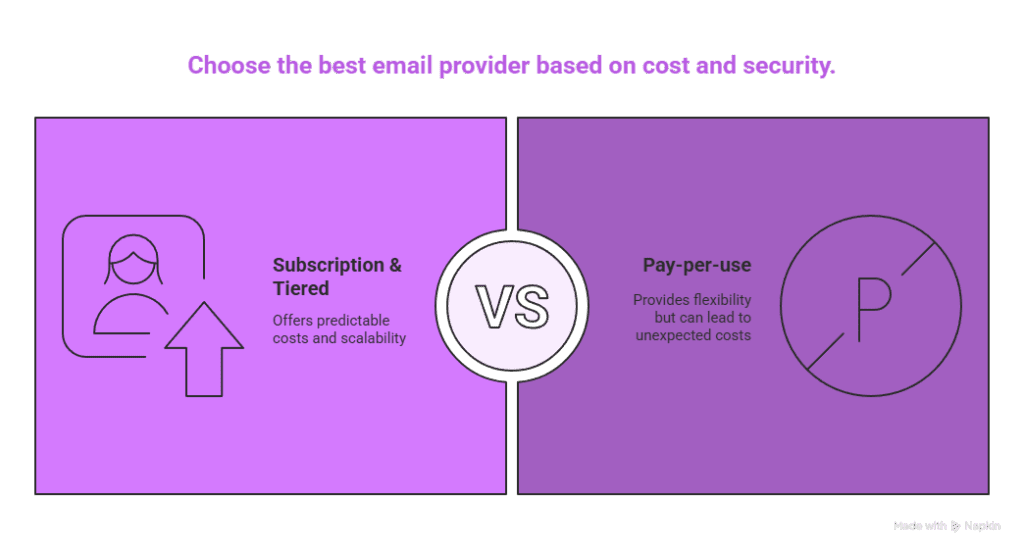
The selection of an email provider depends on both the need for high security standards and affordable pricing options. The essential goal requires balancing security standards with provider pricing structure.
Understanding Pricing Models
The pricing structure of email providers includes subscriptions and pay-per-use and tiered systems which depend on selected features. The decision process for selecting the right budget-friendly email provider requires knowledge of their pricing models.
Hidden Costs
You should watch out for extra costs which may emerge through additional feature or service use. Request a comprehensive cost breakdown from potential providers to avoid unexpected future expenses before making your selection.
Testing and Trial Periods
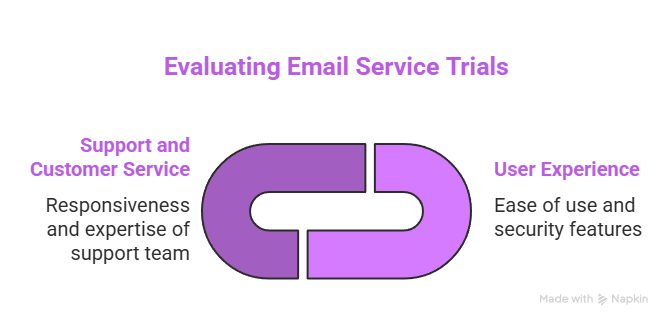
Multiple email providers give users the opportunity to test their service through trial periods and demos before subscription. Users should make use of these testing periods to understand how well the email platform works and how it operates.
Assessing User Experience
Check the user experience while the trial period lasts. The system interface is easy to understand for users. Users should find the security features both simple to use and easy to locate. The ease of use of a platform directly affects the efficiency of daily operations.
Support and Customer Service
The level of support which customers receive needs evaluation during the trial period. Security problems or technical issues become easier to manage when your support team responds quickly and shows expertise.
Meeting Extra Compliance Rules
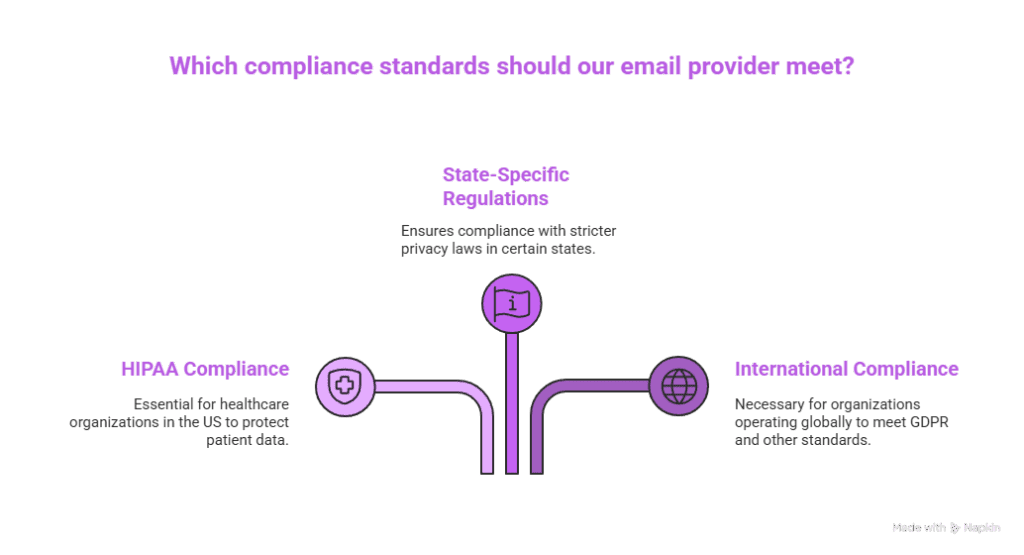
HIPAA compliance remains essential but your organization should also review other applicable regulations. Your organization must meet specific compliance requirements which depend on your location together with your practice type.
State-Specific Regulations
Some states enforce privacy laws that impose more stringent requirements than HIPAA regulations. The selection process for email providers needs research about state-specific rules that might influence your decision.
International Compliance Standards
Organizations which operate across international borders need to check if their email provider meets GDPR and other international regulatory standards. Organizations that manage client data across different nations need to prioritize this requirement.
Final Tips for Choosing the Right Provider
A healthcare organization requires an email provider with both security features and HIPAA compliance to make secure email selections. Organizations that want to protect patient information should select providers by understanding HIPAA requirements and security features and provider reputation and solid BAA agreements.
A detailed evaluation of cost along with service testing and multiple regulatory standards ensures the chosen provider meets all standards. A detailed assessment of available options leads organizations to develop secure communication strategies that stay compliant.
Stay Informed
The email security domain and compliance standards are under ongoing transformation. Organizations must follow the latest HIPAA rules and email security patterns because this knowledge helps them protect their sensitive information and stay compliant. Organizations need to check their email provider’s policies and practices at regular intervals to confirm they fulfill the organizational requirements
Invest in Training
Your organization should dedicate resources to training employees about HIPAA compliance and secure email practices because this step will strengthen your security position. The frontline defense against potential breaches exists within trained employees who require ongoing training for comprehensive compliance.
TRENDING NOW!
Making your email HIPAA compliant allows healthcare providers to share patient data safely through email without violating HIPAA rules. To comply, you must warn patients of risks, get their consent, use a secure encrypted email service, and keep a system for storing emails safely. Encryption is key—emails must be secure in transit and at rest using standards like AES or TLS. Zero-step encryption helps prevent human error by encrypting all messages automatically.
Choosing a HIPAA-compliant email provider involves more than encryption. You must sign a Business Associate Agreement (BAA), follow configuration guides, train staff, and archive emails properly. Some services also need legal review to ensure full compliance. Staff must still use email responsibly, as metadata and subject lines are not encrypted. Retaining emails for at least six years is crucial, and using a secure archive helps manage storage and meet audit needs.
HelpSquad Health stands ready to enhance your operations with our virtual assistant and 24/7 customer service team. Specializing in customer support, back-office tasks, and research, our bilingual agents are available starting at just $8.50 per hour. Embrace the future of healthcare with HelpSquad Health’s commitment to excellence. Start Trial today and experience the transformative impact on your medical practice.


